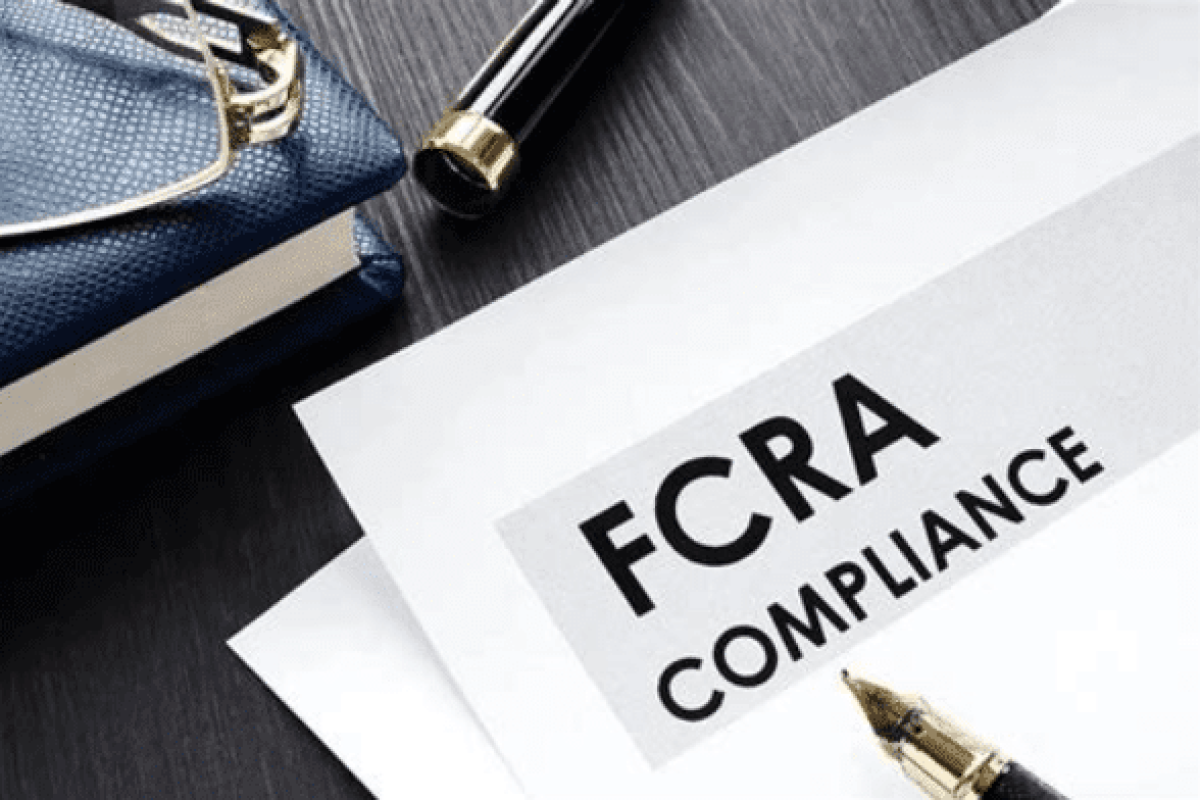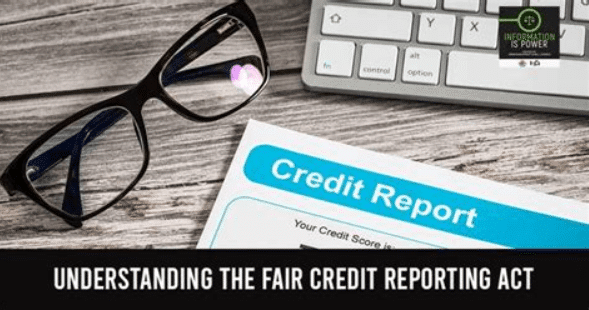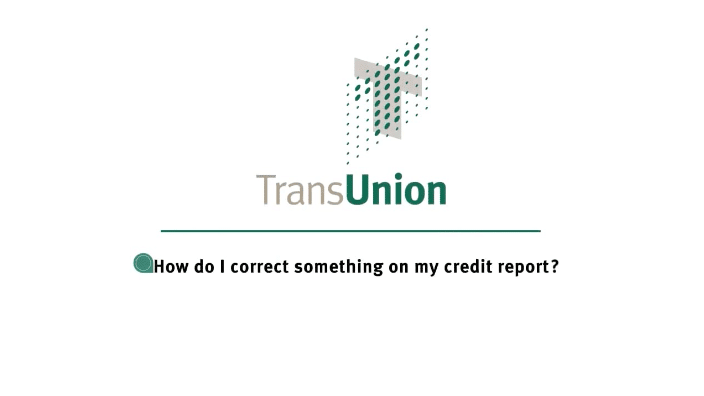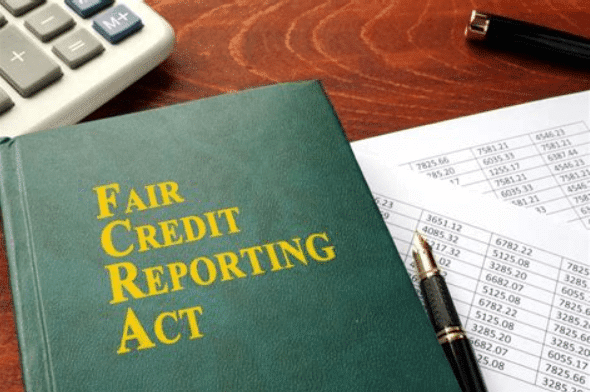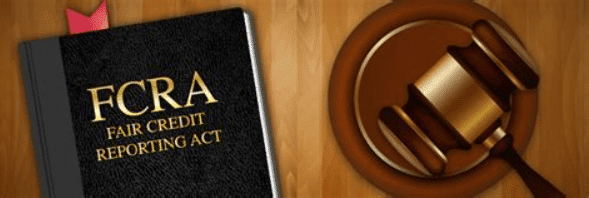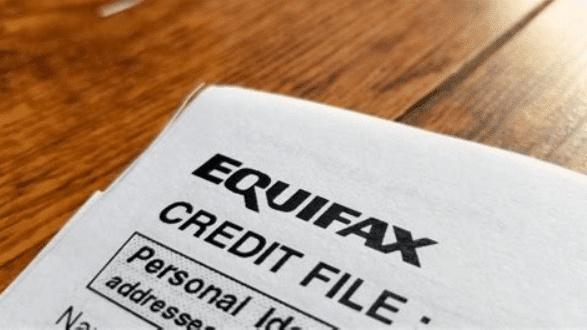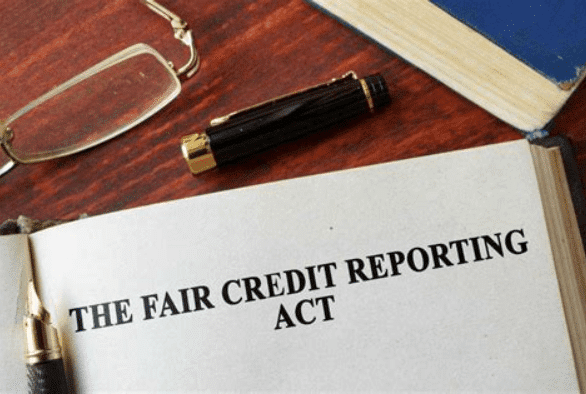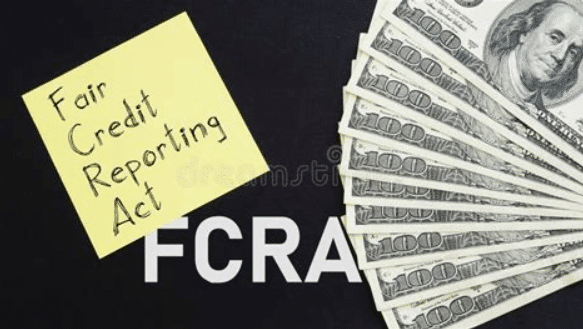The Fair Credit Reporting Act (FCRA) is indeed applicable in Florida, providing consumers with rights and protections against inaccuracies and abuses by credit reporting agencies. If you’ve encountered issues such as receiving a loan denial due to erroneous credit information or noticing glaring inaccuracies on your credit report, it’s crucial to take action.
ZumaZip.com can assist you in understanding the laws specific to Florida that safeguard your personal credit data. By exercising your rights under the FCRA, you can challenge inaccuracies and hold credit reporting agencies accountable for any misconduct or incompetence.
Remember, under the FCRA, you have the right to access your credit report, dispute inaccuracies, and seek corrections. By staying informed about your rights and taking proactive steps to address credit reporting discrepancies, you can protect your financial reputation and ensure the accuracy of your credit information.
The FCRA Regulates How Credit Bureaus Collect and Share Your Information
The Fair Credit Reporting Act (FCRA) is a federal statute designed to govern the practices of credit bureaus in gathering consumer information. Its primary objective is to ensure the accuracy and fairness of credit reporting. Enacted to safeguard consumer rights against the dissemination of misleading or erroneous information by credit bureaus, the law aims to mitigate economic harm or injury to individuals.
In its efforts to protect consumers, the FCRA establishes guidelines delineating the permissible methods by which credit bureaus may lawfully collect and share individuals’ information. Crucially, it sets forth limitations on the types of data that credit entities are authorized to access for inclusion in a consumer’s credit report and under what circumstances.
Credit reporting agencies, known as CRAs, bear the responsibility of collecting, processing, and storing consumers’ information while generating their credit scores. The information accessible to a credit reporting agency encompasses:
- Past loans
- Current debts
- Payment history
- Employment/business
- Child support
- Previous or current bankruptcy petitions
- Previous or pending criminal records
- Previous and present addresses
Your credit score serves as a crucial factor in assessing your creditworthiness, influencing decisions made by financial institutions such as banks, credit unions, and other entities when evaluating applications for loans, mortgages, credit cards, insurance, leases, or any other form of credit-related transactions.
File a response with ZumaZip and win in court.
How the FCRA Works in Florida and How Additional Laws Protect Your Information
In Florida, the Fair Credit Reporting Act (FCRA) operates similarly to its application in other states, with additional provisions aimed at preventing discrimination and misuse of consumers’ credit reports.
For instance, in the insurance sector, if an insurer utilizes an applicant’s credit report for underwriting or rating purposes, they are obligated to notify the consumer of this action. Should an adverse decision regarding the application arise, the insurer must adequately communicate the reason for denial to the applicant, along with disclosing the name, address, and contact details of the reporting agency that supplied the credit report.
Moreover, any credit report request must not be based solely on criteria such as race, color, religion, marital status, age, gender, national origin, or income.
In employment scenarios, employers are required to obtain written consent from job applicants before requesting their credit reports. Denial of employment solely based on a credit report is prohibited, as is termination of an employee for the same reason. In both instances, applicants or employees must be given an opportunity to provide context and explanation for the information contained in their credit reports.
Employers are also mandated to issue a pre-adverse notice if a credit report suggests an employee or applicant is unqualified for a position.
Finally, consumers are entitled to impose a security freeze on their credit reports, allowing only themselves to access the information therein. Consent is required for any external entity or individual seeking access to the credit report or score.
Protect your credit score by responding to debt collectors with ZumaZip.com.
How the FCRA Benefits Consumers Like You
The FCRA primarily serves to safeguard consumers’ rights in situations where misinformation could be utilized to their detriment. Additionally, it aims to ensure the preservation of every consumer’s privacy rights without infringement. Below are the key rights afforded to consumers under the FCRA:
- Access to Your Credit Report. The FCRA seeks to ensure every consumer has the right to know what is in their file.
- Accuracy of Credit Reports. Consumers have the right to demand accurate and fair credit reports as the accuracy of the information entered in a credit report will significantly impact a consumer’s creditworthiness.
- Right to Dispute False or Incorrect Information in Your Credit Report. When incorrect information is entered in your credit report, a consumer may question and demand it is removed once the credit reporting agency confirms the false information.
- Right to Demand Removal of False and Outdated Information. Negative information can only remain on a credit report for up to seven years, while a bankruptcy record can stay on your record for ten years. A criminal record can stay on your report indefinitely.
- Limited Access to Your File. A consumer can access their credit report, but others are restricted from accessing it. The FCRA observes that only an entity with permissible purposes can obtain access to a consumer’s credit report aside from the consumer. Usually, this is the company offering credit, the consumer’s landlords, or for employment purposes.
- Rights to Know Who Requested Your Credit Report. For credit purposes, a consumer has the right to know who has requested their credit report within the year. For employment purposes, the consumer has the right to know who has asked for it within the last two years.
- Rights to be Informed if the Information in Your File has been Used Against You. Suppose you receive an adverse decision because of your credit report. In that case, the company who issued the unfavorable decision must inform you of the reason for the decision and give you the name, address, and contact number of the reporting agency that provided your information.
- Your Account Numbers and Other Information Are Restricted. A consumer’s social security number, bank accounts, and credit card numbers should not be disclosed. This also includes a prohibition against obtaining the consumer’s medical information to be used in assessing creditworthiness.
- Rights to Demand Damages. A consumer can file for damages against a credit reporting agency or anyone who uses the credit report in violation of the FCRA.
Make the right defense the right way with ZumaZip.com.
The Fair Credit Reporting Act (FCRA) is a federal statute designed to safeguard consumers’ rights and ensure fairness, accuracy, and privacy in credit-related matters such as credit applications, employment screenings, leases, and insurance applications. It mandates that consumer credit reporting agencies provide precise credit reports and protect individuals’ privacy rights concerning their information. By establishing guidelines, the FCRA prevents the abuse of power by reporting agencies in the collection, storage, sale, and dissemination of consumer information.
Moreover, individual states may enact supplementary legislation to augment the FCRA’s provisions, thereby offering additional protections tailored to their respective jurisdictions. For instance, in Florida, state laws may further refine and strengthen the application of FCRA standards to better serve residents’ interests.
Overall, these legislative frameworks aim to safeguard consumers from unfair practices, discrimination, and inequality in credit reporting processes. Understanding the FCRA and relevant state laws empowers individuals to ensure the accuracy and integrity of their credit reports, thereby upholding their rights and promoting financial fairness.
What is ZumaZip?
ZumaZip is a convenient solution designed to streamline your response to a debt collection lawsuit. Here’s a breakdown of what you can expect when you use ZumaZip:
Firstly, you’ll access our user-friendly web application, which guides you through the process step by step. You’ll be prompted to answer a series of questions related to your specific situation. Once you’ve completed the questionnaire, you have the option to either print out the finalized forms and mail them to the appropriate courts yourself, or you can opt to utilize ZumaZip’s services to file them on your behalf. Additionally, if you choose this option, an attorney will review your document for added peace of mind.
If you’re seeking guidance on how to effectively respond to a debt collection lawsuit, ZumaZip can provide the assistance you need. Feel free to explore our FAQs for more information on what ZumaZip has to offer.
What if I haven’t been sued yet?
If you’ve only received a collections notice, but not a lawsuit, the best way to respond is with a Debt Validation Letter. When a debt collector contacts you in any way, whether it’s by phone or mail, you can respond by formally requesting a debt validation with a Debt Validation Letter . This letter notifies the collector that you dispute the debt and forces them to provide proof you owe the debt. They can’t call you or continue collecting until they provide validation of the debt. This flowchart shows how you can use a Debt Validation Letter to win.
Get started with a Debt Validation Letter here.
How to Answer a Summons for debt collection in all 50 states
Here’s a list of guides on how to respond to a debt collection lawsuit in each state:
- Alabama
- Alaska
- Arizona
- Arkansas
- California
- Colorado
- Connecticut
- Delaware
- Florida
- Georgia
- Hawaii
- Idaho
- Illinois
- Indiana
- Iowa
- Kansas
- Kentucky
- Louisiana
- Maine
- Maryland
- Massachusetts
- Michigan
- Minnesota
- Mississippi
- Missouri
- Montana
- Nebraska
- Nevada
- New Hampshire
- New Jersey
- New Mexico
- New York
- North Carolina
- North Dakota
- Ohio
- Oklahoma
- Oregon
- Pennsylvania
- Rhode Island
- South Carolina
- South Dakota
- Tennessee
- Texas
- Utah
- Vermont; Vermont (Small Claims court)
- Virginia
- Washington
- West Virginia
- Wisconsin
- Wyoming
Guides on how to beat every debt collector
Hey there! Facing off against a debt collector can feel like a daunting challenge, but fear not! We’re here to help you navigate through it all with our handy guides designed to assist you in beating every debt collector you encounter. Whether you’re facing a new lawsuit or dealing with a persistent collector, we’ve got your back. Stay positive, stay informed, and let’s tackle this together!
- Absolute Resolutions Investments LLC
- Accredited Collection Services
- Alliance One
- Amcol Clmbia
- American Recovery Service
- Asset Acceptance LLC
- Asset Recovery Solutions
- Associated Credit Services
- Autovest LLC
- Cach LLC
- Cavalry SPV I LLC
- Cerastes LLC
- Colinfobur
- Covington Credit
- Crown Asset Management
- CTC Debt Collector
- Cypress Financial Recoveries
- Delanor Kemper & Associates
- Eagle Loan of Ohio
- Educap
- Estate Information Services
- FIA Card Services
- Forster & Garbus
- Freshview Solutions
- Fulton Friedman & Gullace LLP
- Harvest Credit Management
- Howard Lee Schiff
- Hudson & Keyse LLC
- Integras Capital Recovery LLC
- Javitch Block
- Jefferson Capital Systems LLC
- LVNV Funding
- Mannbracken
- Mariner Finance
- Medicredit
- Michael J Adams PC
- Michael J Scott
- Midland Funding LLC
- Mullooly, Jeffrey, Rooney & Flynn
- Mountain Land Collections
- MRS Associates
- National Collegiate Trust
- Nationstar Foreclosure
- Northstar Capital Acquisition
- NCEP LLC
- NRC Collection Agency
- OneMain Financial
- Palisades Collection LLC
- Pallida LLC
- Paragon Revenue Group
- Pinnacle Collections Agency
- PMAB LLC
- Portfolio Recovery Associates
- Provest Law
- PYOD LLC
- Reunion Student Loan Finance Corporation
- Revenue Group
- Regents and Associates
- RSIEH
- Salander Enterprises LLC
- Second Round Sub LLC
- Security Credit Services
- Sherman Financial Group
- Suttell and Hammer
- T-Mobile
- Transworld Systems
- Tulsa Teachers Credit Union
- UCB Collection
- Velo Law Office
- Velocity Investments
- Waypoint Resource Group
- Weinberg and Associates
- Wolpoff & Abramson
Settle your medical debt
Having a health challenge is stressful, but dealing medical debt on top of it is overwhelming. Here are some resources on how to manage medical debt.
- Am I Responsible for My Spouse’s Medical Debt?
- Do I Need a Lawyer for Medical Bills?
- Do I Need a Lawyer to Fight Medical Bill Debt?
- Does Bankruptcy Clear Medical Debt?
- How Much Do Collection Agencies Pay for Medical Debt?
- How to Find Medical Debt Forgiveness Programs
- Is There a Statute of Limitations on Medical Bills?
- Medical Debt Statute of Limitations by State
- Summoned to Court for Medical Bills — What Do I Do?
- Summoned to Court for Medical Bills? What to Do Next
Stop calls from Debt Collectors
Do you keep getting calls from an unknown number, only to realize that it’s a debt collector on the other line? If you’ve been called by any of the following numbers, chances are you have collectors coming after you, and we’ll tell you how to stop them.
- 800-390-7584
- 800-289-8004
- 800-955-6600
- 877-366-0169
- 877-591-0747
- 800-278-2420
- 800-604-0064
- 800-846-6406
- 877-317-0948
- 888-899-4332
- 888-912-7925
- 202-367-9070
- 502-267-7522
Other wage garnishment resources
- Bank Account Garnishment and Liens in Texas
- Can I Stop Wage Garnishment?
- Can My Wife’s Bank Account Be Garnished for My Debt?
- Can Payday Loans Garnish Your Wages?
- Can pensions be garnished?
- Can Private Disability Payments Be Garnished?
- Can Social Security Disability Be Garnished?
- Can They Garnish Your Wages for Credit Card Debt?
- Can You Stop a Garnishment Once It Starts?
- Guide to Garnishment Limits by State
- How Can I Stop Wage Garnishments Immediately?
- How Long Before a Creditor Can Garnish Wages?
- How Long Does It Take to Get Garnished Wages Back?
- How to Fight a Wage Garnishment
- How to Prevent Wage Garnishment
- How to Stop a Garnishment
- How to Stop Social Security Wage Garnishment
- How to Stop Wage Garnishment — Everything You Need to Know
- New York Garnishment Laws – Overview
- Ohio Garnishment Laws — What They Say
- Wage Garnishment Lawyer
- What Is Wage Garnishment?
Guides on Arbitration
If the thought of going to court stresses you out, you’re not alone. Many Americans who are sued for credit card debt utilize a Motion to Compel Arbitration to push their case out of court and into arbitration.
Below are some resources on how to use an arbitration clause to your advantage and win a debt lawsuit.
- How Arbitration Works
- How to Find an Arbitration Clause in Your Credit Agreement
- How to Make a Motion to Compel Arbitration
- How to Make a Motion to Compel Arbitration in Florida
- How to Make a Motion to Compel Arbitration Without an Attorney
- How Credit Card Arbitration Works
- Motion to Compel Arbitration in California
- Sample Motion to Compel Arbitration
Federal Debt Collection Laws Can Protect You
Knowing your rights makes it easier to stand up for your rights. Below, we’ve compiled all our articles on federal debt collection laws that protect you from unfair practices.
- 15 USC 1692 Explained
- Does the Fair Credit Reporting Act Work in Florida?
- FDCPA Violations List
- How to File an FDCPA Complaint Against Your Debt Collector (Ultimate Guide)
- How to Make a Fair Debt Collection Practices Act Demand Letter
- How to Submit a Transunion Dispute
- How to Submit an Equifax Dispute
- How to Submit an Experian Dispute
- What Debt Collectors Cannot Do — FDCPA Explained
- What Does Account Information Disputed by Consumer Meets FCRA Requirements Mean?
- What does “meets FCRA requirements” mean?
- What does FCRA stand for?
- What is the Consumer Credit Protection Act
Resolve Your Debt with Your Creditor
Some creditors, banks, and lenders have an internal collections department. If they come after you for a debt, ZumaZip can still help you respond and resolve the debt. Here’s a list of guides on how to resolve debt with different creditors.
- American Express; American Express – Debt Collection
- Bank of America
- Barclay
- Best Buy Credit Card
- Capital One
- Chase
- Credit One Bank
- Old Navy Credit Card
- PayPal Synchrony Card
- Regional Finance
- Retailers National Bank
- Reunion Student Loan Finance Corporation
- SYNCB/PPEXTR
- Synchrony Bank
- Synchrony Walmart Card
- Target National Bank
- Webbank
- Wells Fargo
- Can I Pay My Original Creditor Instead of a Debt Collection Agency?
- Can I Settle a Debt with the Original Creditor?
Check the Status of Your Court Case
Don’t have time to go to your local courthouse to check the status of your case? We’ve created a guide on how to check the status of your case in every state, complete with online search tools and court directories.
- Alabama Court Case Search—Find Your Lawsuit
- Alaska Court Case Search — Find Your Lawsuit
- Arizona Court Case Search – Find Your Lawsuit
- Arkansas Court Case Search — Find Your Lawsuit
- California Court Case Search- Find Your Lawsuit
- Colorado Court Case Search — Find Your Lawsuit
- Connecticut Case Lookup — Find Your Court Case
- Delaware Court Case Search — Find Your Lawsuit
- Florida Court Case Search — Find Your Lawsuit
- Georgia Court Case Search — Find Your Lawsuit
- Hawaii Court Case Search — Find Your Lawsuit
- Idaho Court Case Search – Find Your Lawsuit
- Illinois Court Case Search — Find Your Lawsuit
- Indiana Court Case Search — Find Your Lawsuit
- Iowa Court Case Search — Find Your Lawsuit
- Kansas Court Case Search — Find Your Lawsuit
- Kentucky Court Case Search — Find Your Lawsuit
- Louisiana Court Case Search — Find Your Lawsuit
- Maine Court Case Search — Find Your Lawsuit
- Maryland Court Case Search — Find Your Lawsuit
- Massachusetts Court Case Search — Find Your Lawsuit
- Michigan Court Case Search — Find Your Lawsuit
- Minnesota Court Case Search — Find Your Lawsuit
- Mississippi Court Case Search — Find Your Lawsuit
- Missouri Court Case Search — Find Your Lawsuit
- Montana Court Case Search — Find Your Lawsuit
- Nebraska Court Case Search — Find Your Lawsuit
- Nevada Court Case Search — Find Your Lawsuit
- New Hampshire Court Case Search — Find Your Lawsuit
- New Jersey Court Case Search—Find Your Lawsuit
- New Mexico Court Case Search – Find Your Lawsuit
- New York Case Search — Find Your Lawsuit
- North Carolina Court Case Search — Find Your Lawsuit
- North Dakota Court Case Search — Find Your Lawsuit
- Ohio Court Case Search — Find Your Lawsuit
- Oklahoma Court Case Search — Find Your Lawsuit
- Oregon Court Case Search — Find Your Lawsuit
- Pennsylvania Court Case Search — Find Your Lawsuit
- Rhode Island Court Case Search — Find Your Lawsuit
- South Carolina Court Case Search — Find Your Lawsuit
- South Dakota Court Case Search — Find Your Lawsuit
- Tennessee Court Case Search — Find Your Lawsuit
- Texas Court Case Search — Find Your Lawsuit
- Utah Court Case Search — Find Your Lawsuit
- Vermont Court Case Search — Find Your Lawsuit
- Virginia Court Case Search — Find Your Lawsuit
- Washington Court Case Search — Find Your Lawsuit
- West Virginia Court Case Search — Find Your Lawsuit
- Wisconsin Court Case Search — Find Your Lawsuit
- Wyoming Court Case Search — Find Your Lawsuit

